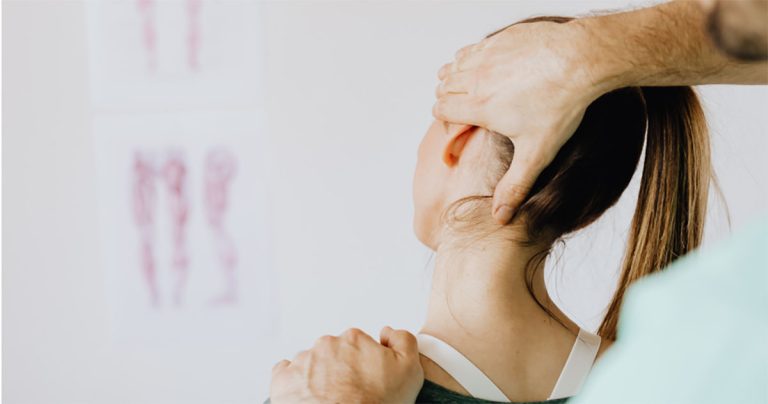Osteopath Chloe Spencer discusses the common issues that she sees when treating singers.
Chloe Spencer is a woman of many talents: she’s an osteopath and vocal coach, and has also worked in archaeology, forensics and finance. (But for the purposes of this article, let’s just focus on her first two skills.)
Chloe is a resident osteopath at the Voice Care Centre, London, and the Still House Clinic, Surrey, and runs a teaching practice.
Speaking on the Singing Teachers Talk podcast, Chloe gave an insight into how she uses osteopathy to help singers.
What is osteopathy?
Most people think of osteopathy as a manual therapy where the patient’s joints are “cracked”. It’s true that during manual manipulation, a cracking sound can sometimes be heard, but there’s more to osteopathy than that.
The overarching principle of osteopathy is to view the body holistically. In other words, if everything is working together in harmony, the body will be healthy. (Conversely, when something goes awry, it can trigger a domino effect and negatively impact other parts of the body).
So if, for example, a patient visits Chloe for help with muscle tension dysphonia, she wouldn’t just look at the muscles around the larynx but would take other issues, such as pain, posture and fatigue, into consideration too.
Pain
Singers often seek Chloe’s help when they suffer from pain brought on from playing instruments like the guitar. Common symptoms include arm and shoulder pain, tennis elbow or pins and needles in the fingers.
“If you’ve got a shoulder that’s creating pain and tension in the neck that will affect the voice,” Chloe says.
“It’s a sort of chain-link effect. And that’s very much the osteopathic way of looking at it. I’m not just going to treat your voice, I’m going to look at everything.”
Posture
We all know how important posture is for singers. That’s why, when a singer is experiencing problems with their voice, Chloe will review their posture.
“The voice is not solely located in the larynx, as we know,” Chloe says. “I mean, you could go as far as to say that it’s global.
“You can look at the feet to see if the singer is not standing straight, if they’re not grounded. If there’s a problem with your feet, ankles, knees, hips or back, anything like that will affect the voice.”
Fatigue
Stress can have a detrimental effect on our health and interfere with our sleeping patterns, which in turn negatively impacts posture.
“Sometimes a person comes in, and they just look flat as a pancake. And you say to them, ‘are you sleeping?’ And then you get this like verbal diarrhoea of ‘no, I’m not’.
“Quite a lot of the stress response and the affected sleep cycles, we can treat with cranial techniques.”




